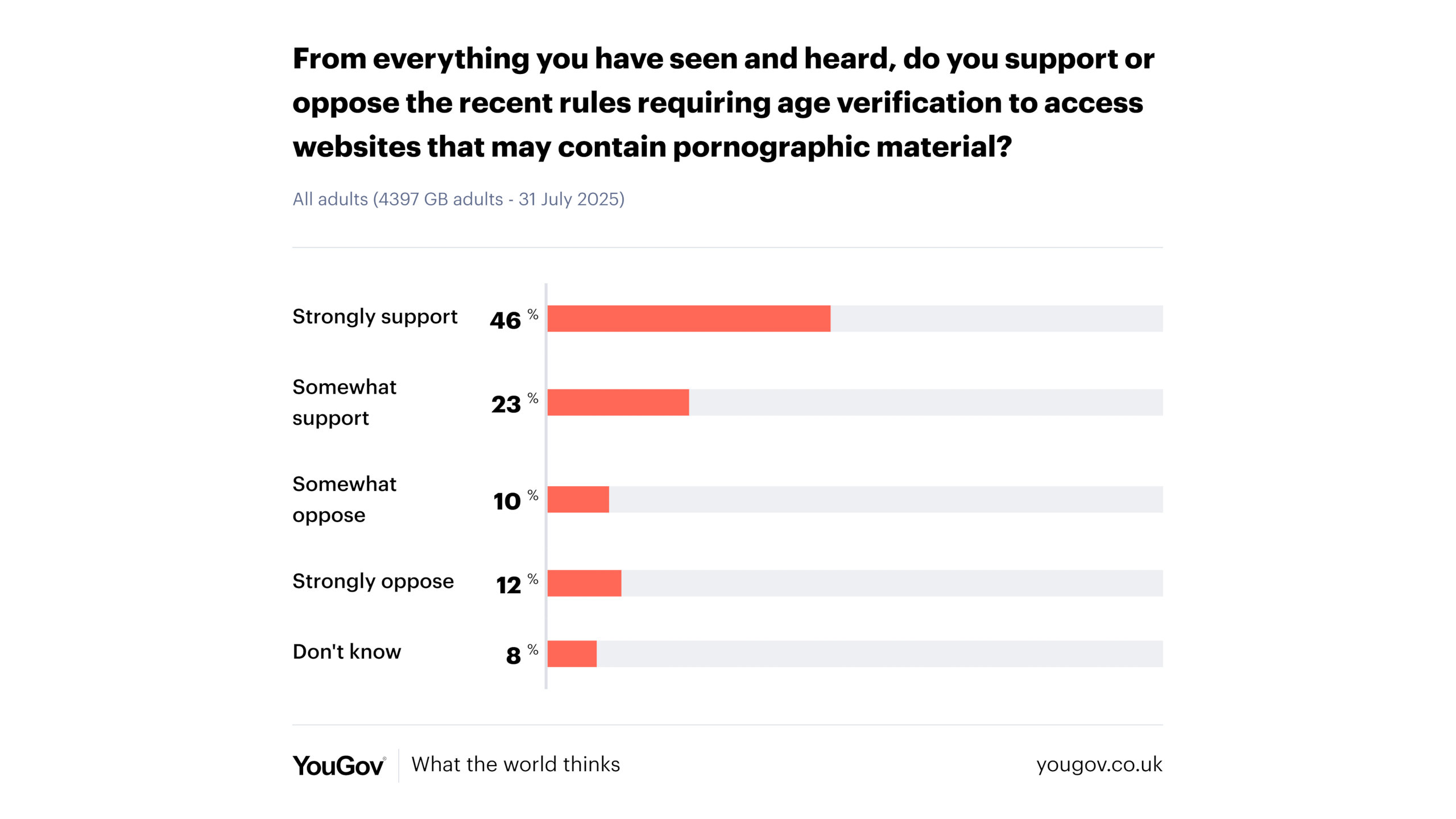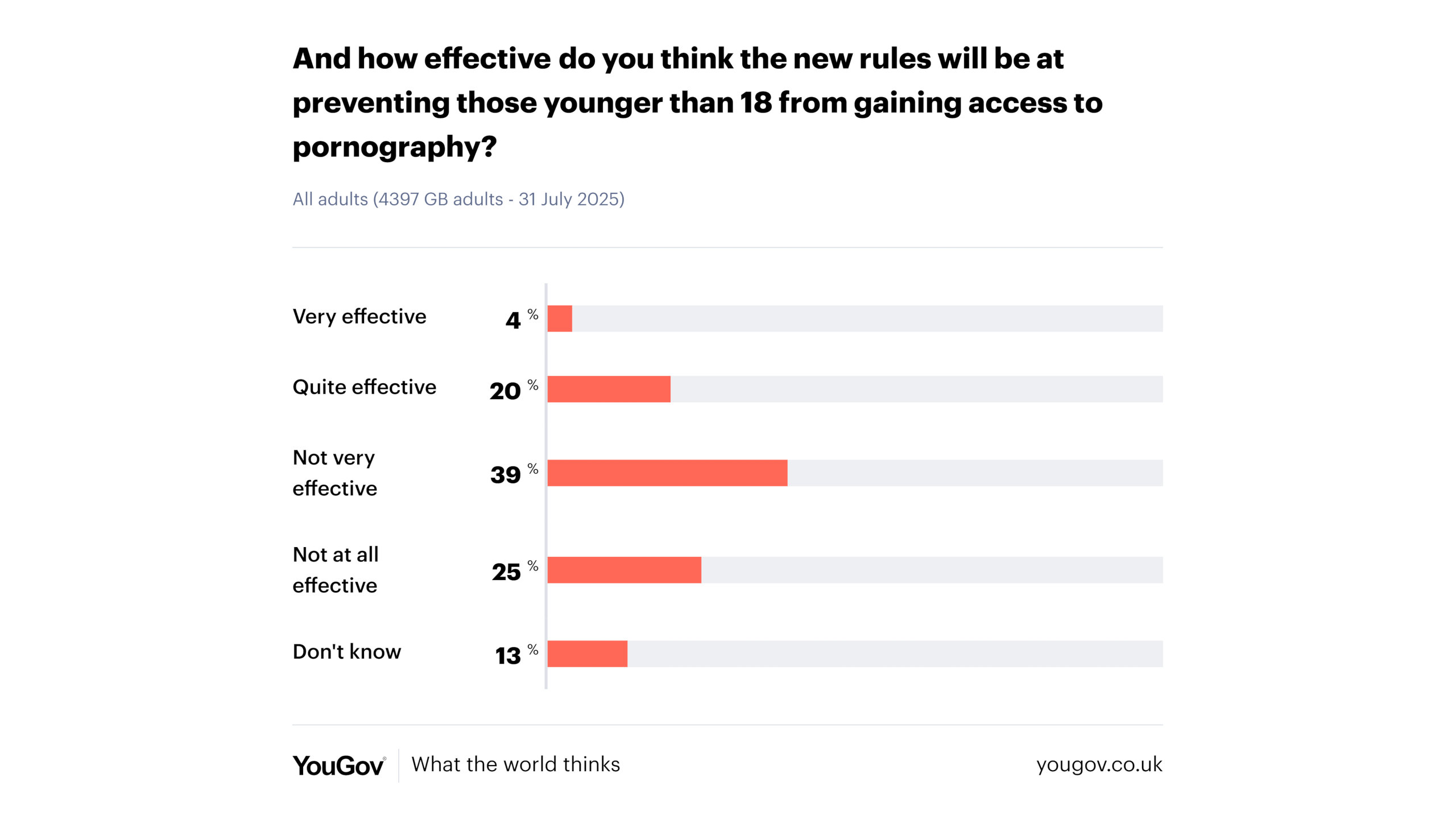It’s been one week since the UK government introduced its Online Safety Act, legislation that requires people to provide age verification in order to access content that is adult-related. Two surveys conducted before and after the rules came into place, by a research and data analysis group, suggest that a significant portion of the British populace supports the new laws, but an equally large percentage also reckon that they’re not very effective.
That’s according to a report from YouGov, which surveyed almost 4,400 British adults about their thoughts on the new Online Safety Act. When asked whether they supported or opposed the legislation, almost 70% of the sample either somewhat or strongly supported it.
However, 64% of the same group of people also believed that the changes are either not very or not at all effective at “preventing those younger than 18 from gaining access to pornography”.
The idiom of ‘damned if you do, damned if you don’t’ is perhaps the most apt description of the current UK government’s attempt at preventing underage people from accessing adult-rated material and content. In theory, nobody under the age of 18 should be able to access anything that’s classed or rated for adults, but the problem has been that said theory has relied entirely on people clicking ‘I am under 18, exit now’ verification buttons.
The UK government’s solution to this was to replace token age verification methods with something that actually works. Except that, as we’ve amply demonstrated ourselves, at least some of the methods used to check a website user’s age can be fooled with a screenshot of a game.

There is also concern over data security and privacy behind the age verification systems because it’s all handled by private companies, with seemingly little in the way of a safety net, nor the option to just use one system for every age check. And this doesn’t include false age blocks on the basis of what words a website might use.
While a sample of a little under 4,400 Brits might not seem particularly large, it’s big enough to pay attention to, and the UK government will certainly feel vindicated in its actions by the strong support of the Online Safety Act. The question now is whether it will take any further action to counter the views that the Act is essentially toothless and will do little to actually prevent underage people from accessing adult material.
Given the actual mechanisms the government chose to implement, it doesn’t seem likely that there will be any amendments to the legislation any time soon. That’s because leaving it all in the hands of private companies is considerably less expensive than having a government-run centralised system.
One impact that the Online Safety Act had was on the use of virtual private networks (VPNs), with the likes of Proton VPN reporting a huge surge in sign-ups to its services. With your IP address now indicating that you’re browsing a webpage from outside of the UK, the demand that you verify your age promptly disappears.

This prompted the British government to respond that it wasn’t planning to ban VPNs in response, but it would look “very closely” at how they’re being used.
What happens next isn’t certain, but I strongly suspect that once the new law passes out of news headlines, everything will just carry on just as it has for many years. The only difference is that instead of just clicking ‘Sure, yeah, I’m definitely 18’, people will just use a few additional steps to bypass the age check altogether; either that or use generative AI or a game to fool the system.
If there’s tech to stop you from getting what you want, there’s always tech to get it anyway.
